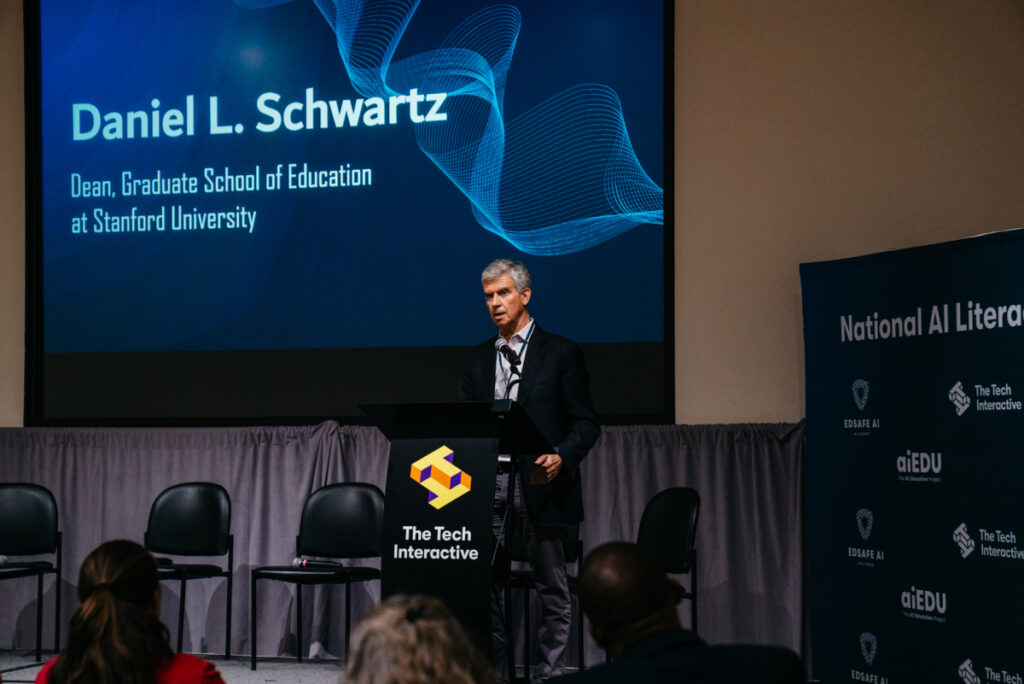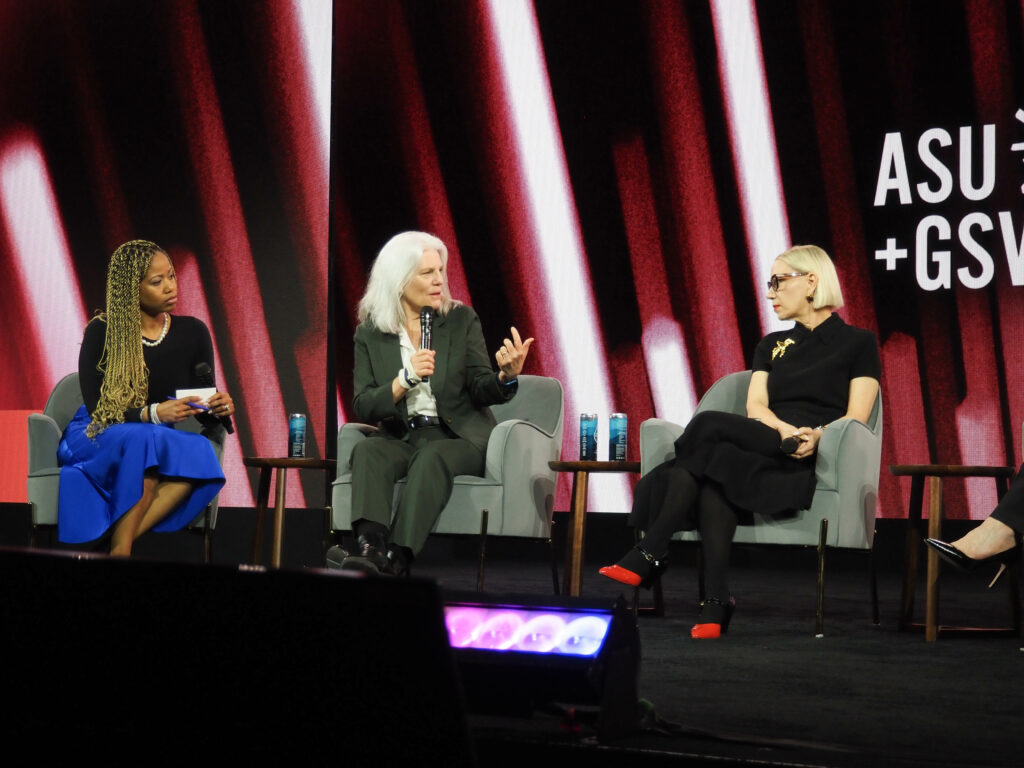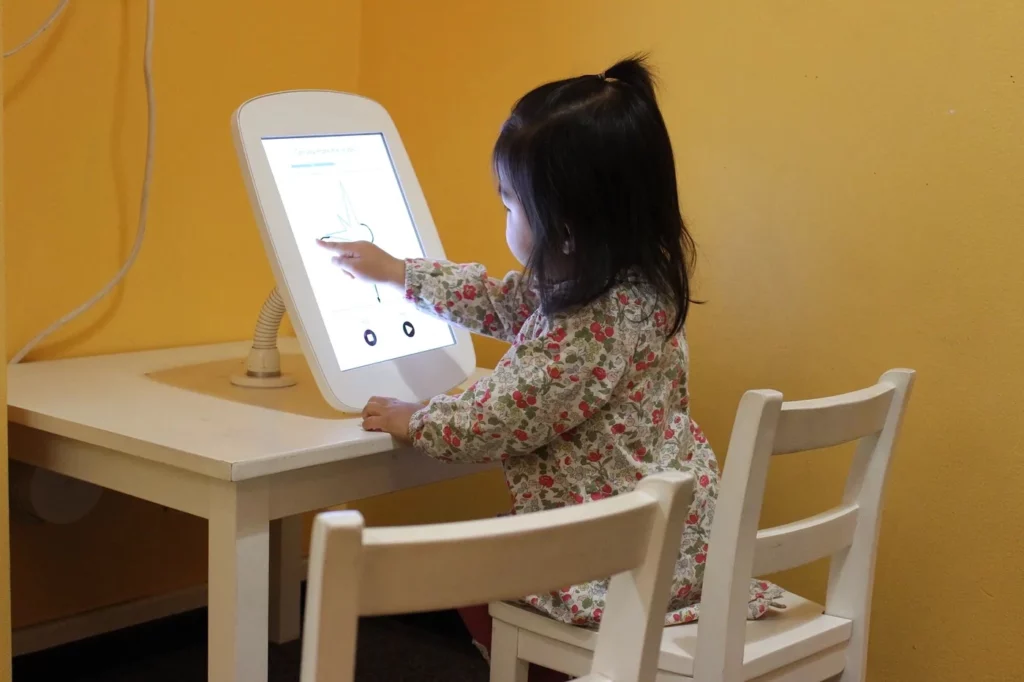Almost before the words ChatGPT became cemented in the popular consciousness, educators began both to fawn and fret over its implications for their field. As cautionary stories swirled in the popular media and ChatGPT passed written examinations at top law and business schools and even a medical licensing exam, public debate raged about the larger implications of artificial intelligence that can create pages-long essays on virtually any topic.
“The chatter and fears raised by pundits and commentators is very loud,” says Associate Professor Victor Lee, faculty lead of the AI + Education initiative at the Stanford Accelerator for Learning. “But one of the best things we can do right now is pause and listen to concerns from K-12 educators themselves.”
To begin this work, a collaboration of leaders from the Stanford Accelerator for Learning, Stanford's Hasso Plattner Institute of Design – the d.school, and the Stanford Institute for Human-Centered Artificial Intelligence recently convened an online seminar for K-12 educators from across the country to join in a frank and open dialog about ChatGPT, its use cases and implications. The result was “Exploring Generative AI Tools in Classrooms,” a 90-minute seminar with some 50 practicing educators.
Open Dialog
The Jan. 26 seminar struck a constructive tone, seeking to create groups where educators and others could explore the generative possibilities for how to welcome ChatGPT and similar technologies into the classroom. The inclusion of voices from OpenAI, the organization that launched ChatGPT, brought an important and “fascinating” perspective to the mix, noted Isabelle Hau, executive director at the Stanford Accelerator for Learning.
“We started to answer some big questions about this still very new technology and began to think deeply about what education means in the context of such a powerful tool,” Hau said. “It was an all-too-rare opportunity to have researchers, educators, and tech developers collaborate authentically toward better design and solutions for education.”
OpenAI shared concerns about its own technology, but also provided a roadmap to help teachers integrate ChatGPT in their work while detailing ways it is working to address educator concerns, like plagiarism detectors and reducing bias from its datasets.
“I hope that educators, policymakers, and technology companies can work together to design standards for safe, helpful, and responsible systems,” said Lama Ahmad, a policy researcher at OpenAI, who laid out a twofold challenge for the field: How can we equip teachers to deploy these models effectively and how do we equip students to navigate the complexities that AI will create?
Creative Confidence
In the few weeks since ChatGPT’s release, educators have run the gamut of emotions, acknowledged Laura McBain, interim managing director at the d.school, in her opening comments.
“We’re feeling excited … anxious … nervous,” McBain said, “But what we are really trying to do across these existing technologies is help everyone develop their own creative confidence to change the world. We're excited to host a brainstorming session to talk about the provocations and the possibilities of ChatGPT.”
The discussions generated ideas for educators to devise creative lesson plans, improve their classroom experiences, and help students grow.
“We’ve seen ChatGPT to be used to draft and iterate on lesson plans, to do iterative design of quiz questions, experimenting with custom tutoring tools, to give grammatical and structural feedback on student writing,” said OpenAI’s Ahmad.
In the final third of the seminar, attendees reconvened to recap what they had discussed. Most agreed that ChatGPT represents a “sea change” for education—an opportunity for educators to reexamine fundamental questions about their profession:
· Why do we teach what we teach?
· What does it mean to learn?
· What do educators mean by terms like ‘rigor’ and ‘assessment’?
These questions that existed long before, and which will exist long after, ChatGPT is as institutionalized in education as textbooks and chalkboards. The answers to them will not be generated artificially.



